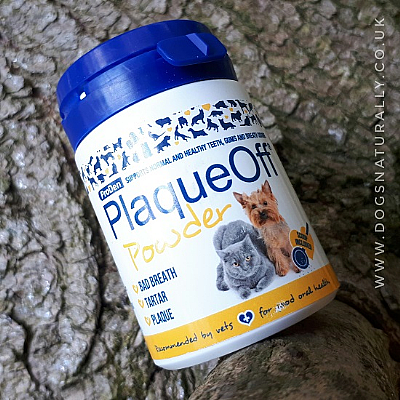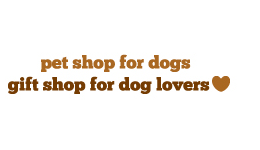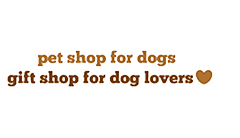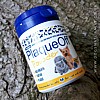
Dogs Naturally takes your privacy very seriously. We accept Payments Via PayPal, Bank Transfer & On the Phone.

ProDen Plaque Off 60g
Natural Dog Plaque Remover
ProDen PlaqueOff for dogs is a simple and natural seaweed food supplement that can help further reduce plaque accumulation and soften calculus, rendering it easier to remove.
Description
Looking after your dog's teeth is just as important as looking after your own. Unfortunately, although everyone appreciates the need for dental care, most dogs do not receive adequate attention and may end-up suffering as a result.
Help is at hand: clinically proven ProDen PlaqueOff is a simple and natural seaweed food supplement that can help further reduce plaque accumulation and soften calculus, rendering it easier to remove. Taken daily with food and combined with good oral hygiene, results can be seen within 3 - 8 weeks. Ideal for clients who struggle with mechanical cleaning methods. It can also be used on older pets where there are risks involved with administering general anaesthetic.
ProDen Plaque Off is a natural food supplement which is simply added to your dogs food. A new innovation in oral care containing specially selected seaweed which is harvested from the seas of Norway and Iceland. It contains 12 vitamins, 13 minerals & trace elements and is rich in natural iodine. It helps reduce plaque accumulation and the buildup of tartar, and is particularly effective against bad breath. Used daily it can significantly help in the control of dental plaque, tartar and bad breath.
A 60g pot can last for 6-12 months with daily use. Simply sprinkle the dried granules over your dogs food daily and let PlaqueOff do the rest.
Frequently Asked Questions
What is ProDen PlaqueOff™ Animal? It is a patented food supplement containing selected natural seaweed - shown in clinical trials to reduce plaque accumulation, the formation of tartar and to improve bad breath .
Will PlaqueOff get rid of existing tartar? Owners report that over time, the texture and tenacity of tartar changes making it easier to remove with brushing or chewing.
How quickly will I see results with PlaqueOff? Owners normally report improvements to bad breath within a week or two. Plaque reduction takes a little longer typically 8 to 12 weeks. For dogs with extensive tartar, professional dental cleaning may be required for maximum effectiveness. The time taken and the results seen will vary between animals.
Are there animals that shouldn't use PlaqueOff? PlaqueOff contains seaweed and is naturally rich in iodine. This may be a problem in animals being treated for hyperthyroidism (over-active thyroid). Owners of such animals should consult their vet before using. You should also take vet advice if your animal is pregnant or lactating.
What is plaque and why it is important to remove it? Just like us, plaque (a film of bacteria that sticks to our teeth, gums and tongue) is continuously forming in the mouths of our dogs. Plaque produces acids and other toxins (noxious chemicals) which attack teeth and gums resulting in dental problems such as bad breath, gum inflammation and tartar. Furthermore, gum disease has been linked to serious health problems. This is why it is important to remove plaque regularly from your dog's teeth.
What is gum disease? The toxins produced by plaque bacteria cause inflammation in the gums (this will be noticeable as redness, swelling and a tendency to bleed easily). Inflammation over time results in damage to the fibres that hold the teeth in their sockets in the jaw bones. Tooth loss often follows, as the fibres can no longer hold the tooth in the jaw. Plaque can turn into tartar, a hardened and calcified form of plaque. In turn, tartar is an excellent surface for new plaque to form on. Tartar is hard and can usually only be removed by a vet under general anaesthesia.
Does diet have an effect on dental disease? Diet is a contributory factor in dental health. Dogs fed on soft foods rather than hard, tend to buildup more plaque and tartar.
Are there any other risks associated with plaque? There is a growing body of evidence that links untreated gum disease with other conditions such as heart and kidney disease. Such problems reduce life expectancy, so the argument for ensuring your pet enjoys good oral hygiene care is compelling.
How do you know if a pet is suffering from a dental problem? Bad breath is often the first indication that a pet has problems with its teeth and gums. Around 85% of bad breath in cats and dogs is thought to be caused in this way. Bad breath is commonly caused by the sulphur gases produced by plaque bacteria. Common signs of gum disease are gums that bleed when brushed or during chewing, reluctance to eat, or excessive drooling. Oral pain may also make your pet become head shy resulting in them avoiding contact, and leave them appearing depressed and less active than normal.
How common is gum disease in dogs? Very common! 85% of dogs over three years of age are affected. Dog owners and vets are increasingly recognising the importance of a healthy mouth, not only for the dog's comfort, but also the likely impact an unhealthy mouth can have on overall health. Veterinary dentals are fast becoming one of the most common surgical procedures.
Do all breeds of dogs suffer equally with dental problems? Certain breeds dogs appear to experience more problems with plaque and tartar than others. Breed types with a lot of muzzle hair such as poodles, schnauzers and terriers typically suffer more dentalproblems. Toy breeds tend to breathe through their mouths and animals with an overbite or very long muzzles may also be at particular risk. Like humans there is great variation between individuals.
How do I keep my dog's teeth plaque free? Tooth brushing is the best way to remove plaque. It is better to begin brushing when your puppy is 6-8 weeks old. However, it is never too late to start,although it may take a little longer before it is accepted. Tooth brushing should be done daily. When brushing you need to ensure that you clean all five surfaces of each tooth. Be methodical, start with the lower jaw use a gentle circular motion to clean the whole tooth, paying particular attention to where the gum and teeth meet. The ideal toothbrush will allow you access to all the teeth. A small head with medium textures filaments is recommended.
Do I need to use a special toothpaste? Dog toothpastes are designed to encourage acceptance of brushing with their dog-friendly flavourings. Some contain enzymes or other anti-plaque ingredients designed to enhance brushing. Human pastes should not be used as they contain ingredients that are not suitable for dogs.
What can I do if my pet objects to having it's teeth brushed? Use the 3 P's: Patience, Praise and Prizes - to make tooth brushing a fun time for your dog. Will brushing get rid of my pet's bad breath? If despite regular brushing your dog still has bad breath then you should consult a vet. In a small number of cases it can indicate other diseases unrelated to oral hygiene problems.
I give my dog chews and bones; do I also need to brush? Yes. Whilst chewing bones and hard treats are fun, dogs do not all chew equally on all tooth surfaces. Consequently, if you rely exclusively on chewing to clean the teeth your pet may build up plaque on some of the teeth not involved in chewing. Some dogs do not like chewing and for these dogs other alternatives should be sought. Remember that some dog chews are high in calories, and may contribute to pet obesity which is a growing problem.
ProDen Plaque Off 60g
Natural Dog Plaque Remover
ProDen PlaqueOff for dogs is a simple and natural seaweed food supplement that can help further reduce plaque accumulation and soften calculus, rendering it easier to remove.
 you save £1.31
you save £1.31
- Description
- Reviews
- Product Enquiry
Description
Looking after your dog's teeth is just as important as looking after your own. Unfortunately, although everyone appreciates the need for dental care, most dogs do not receive adequate attention and may end-up suffering as a result.
Help is at hand: clinically proven ProDen PlaqueOff is a simple and natural seaweed food supplement that can help further reduce plaque accumulation and soften calculus, rendering it easier to remove. Taken daily with food and combined with good oral hygiene, results can be seen within 3 - 8 weeks. Ideal for clients who struggle with mechanical cleaning methods. It can also be used on older pets where there are risks involved with administering general anaesthetic.
ProDen Plaque Off is a natural food supplement which is simply added to your dogs food. A new innovation in oral care containing specially selected seaweed which is harvested from the seas of Norway and Iceland. It contains 12 vitamins, 13 minerals & trace elements and is rich in natural iodine. It helps reduce plaque accumulation and the buildup of tartar, and is particularly effective against bad breath. Used daily it can significantly help in the control of dental plaque, tartar and bad breath.
A 60g pot can last for 6-12 months with daily use. Simply sprinkle the dried granules over your dogs food daily and let PlaqueOff do the rest.
Frequently Asked Questions
What is ProDen PlaqueOff™ Animal? It is a patented food supplement containing selected natural seaweed - shown in clinical trials to reduce plaque accumulation, the formation of tartar and to improve bad breath .
Will PlaqueOff get rid of existing tartar? Owners report that over time, the texture and tenacity of tartar changes making it easier to remove with brushing or chewing.
How quickly will I see results with PlaqueOff? Owners normally report improvements to bad breath within a week or two. Plaque reduction takes a little longer typically 8 to 12 weeks. For dogs with extensive tartar, professional dental cleaning may be required for maximum effectiveness. The time taken and the results seen will vary between animals.
Are there animals that shouldn't use PlaqueOff? PlaqueOff contains seaweed and is naturally rich in iodine. This may be a problem in animals being treated for hyperthyroidism (over-active thyroid). Owners of such animals should consult their vet before using. You should also take vet advice if your animal is pregnant or lactating.
What is plaque and why it is important to remove it? Just like us, plaque (a film of bacteria that sticks to our teeth, gums and tongue) is continuously forming in the mouths of our dogs. Plaque produces acids and other toxins (noxious chemicals) which attack teeth and gums resulting in dental problems such as bad breath, gum inflammation and tartar. Furthermore, gum disease has been linked to serious health problems. This is why it is important to remove plaque regularly from your dog's teeth.
What is gum disease? The toxins produced by plaque bacteria cause inflammation in the gums (this will be noticeable as redness, swelling and a tendency to bleed easily). Inflammation over time results in damage to the fibres that hold the teeth in their sockets in the jaw bones. Tooth loss often follows, as the fibres can no longer hold the tooth in the jaw. Plaque can turn into tartar, a hardened and calcified form of plaque. In turn, tartar is an excellent surface for new plaque to form on. Tartar is hard and can usually only be removed by a vet under general anaesthesia.
Does diet have an effect on dental disease? Diet is a contributory factor in dental health. Dogs fed on soft foods rather than hard, tend to buildup more plaque and tartar.
Are there any other risks associated with plaque? There is a growing body of evidence that links untreated gum disease with other conditions such as heart and kidney disease. Such problems reduce life expectancy, so the argument for ensuring your pet enjoys good oral hygiene care is compelling.
How do you know if a pet is suffering from a dental problem? Bad breath is often the first indication that a pet has problems with its teeth and gums. Around 85% of bad breath in cats and dogs is thought to be caused in this way. Bad breath is commonly caused by the sulphur gases produced by plaque bacteria. Common signs of gum disease are gums that bleed when brushed or during chewing, reluctance to eat, or excessive drooling. Oral pain may also make your pet become head shy resulting in them avoiding contact, and leave them appearing depressed and less active than normal.
How common is gum disease in dogs? Very common! 85% of dogs over three years of age are affected. Dog owners and vets are increasingly recognising the importance of a healthy mouth, not only for the dog's comfort, but also the likely impact an unhealthy mouth can have on overall health. Veterinary dentals are fast becoming one of the most common surgical procedures.
Do all breeds of dogs suffer equally with dental problems? Certain breeds dogs appear to experience more problems with plaque and tartar than others. Breed types with a lot of muzzle hair such as poodles, schnauzers and terriers typically suffer more dentalproblems. Toy breeds tend to breathe through their mouths and animals with an overbite or very long muzzles may also be at particular risk. Like humans there is great variation between individuals.
How do I keep my dog's teeth plaque free? Tooth brushing is the best way to remove plaque. It is better to begin brushing when your puppy is 6-8 weeks old. However, it is never too late to start,although it may take a little longer before it is accepted. Tooth brushing should be done daily. When brushing you need to ensure that you clean all five surfaces of each tooth. Be methodical, start with the lower jaw use a gentle circular motion to clean the whole tooth, paying particular attention to where the gum and teeth meet. The ideal toothbrush will allow you access to all the teeth. A small head with medium textures filaments is recommended.
Do I need to use a special toothpaste? Dog toothpastes are designed to encourage acceptance of brushing with their dog-friendly flavourings. Some contain enzymes or other anti-plaque ingredients designed to enhance brushing. Human pastes should not be used as they contain ingredients that are not suitable for dogs.
What can I do if my pet objects to having it's teeth brushed? Use the 3 P's: Patience, Praise and Prizes - to make tooth brushing a fun time for your dog. Will brushing get rid of my pet's bad breath? If despite regular brushing your dog still has bad breath then you should consult a vet. In a small number of cases it can indicate other diseases unrelated to oral hygiene problems.
I give my dog chews and bones; do I also need to brush? Yes. Whilst chewing bones and hard treats are fun, dogs do not all chew equally on all tooth surfaces. Consequently, if you rely exclusively on chewing to clean the teeth your pet may build up plaque on some of the teeth not involved in chewing. Some dogs do not like chewing and for these dogs other alternatives should be sought. Remember that some dog chews are high in calories, and may contribute to pet obesity which is a growing problem.
Reviews
Product Enquiry
ProDen Plaque Off 60g
Natural Dog Plaque Remover
ProDen PlaqueOff for dogs is a simple and natural seaweed food supplement that can help further reduce plaque accumulation and soften calculus, rendering it easier to remove.
Description
Looking after your dog's teeth is just as important as looking after your own. Unfortunately, although everyone appreciates the need for dental care, most dogs do not receive adequate attention and may end-up suffering as a result.
Help is at hand: clinically proven ProDen PlaqueOff is a simple and natural seaweed food supplement that can help further reduce plaque accumulation and soften calculus, rendering it easier to remove. Taken daily with food and combined with good oral hygiene, results can be seen within 3 - 8 weeks. Ideal for clients who struggle with mechanical cleaning methods. It can also be used on older pets where there are risks involved with administering general anaesthetic.
ProDen Plaque Off is a natural food supplement which is simply added to your dogs food. A new innovation in oral care containing specially selected seaweed which is harvested from the seas of Norway and Iceland. It contains 12 vitamins, 13 minerals & trace elements and is rich in natural iodine. It helps reduce plaque accumulation and the buildup of tartar, and is particularly effective against bad breath. Used daily it can significantly help in the control of dental plaque, tartar and bad breath.
A 60g pot can last for 6-12 months with daily use. Simply sprinkle the dried granules over your dogs food daily and let PlaqueOff do the rest.
Frequently Asked Questions
What is ProDen PlaqueOff™ Animal? It is a patented food supplement containing selected natural seaweed - shown in clinical trials to reduce plaque accumulation, the formation of tartar and to improve bad breath .
Will PlaqueOff get rid of existing tartar? Owners report that over time, the texture and tenacity of tartar changes making it easier to remove with brushing or chewing.
How quickly will I see results with PlaqueOff? Owners normally report improvements to bad breath within a week or two. Plaque reduction takes a little longer typically 8 to 12 weeks. For dogs with extensive tartar, professional dental cleaning may be required for maximum effectiveness. The time taken and the results seen will vary between animals.
Are there animals that shouldn't use PlaqueOff? PlaqueOff contains seaweed and is naturally rich in iodine. This may be a problem in animals being treated for hyperthyroidism (over-active thyroid). Owners of such animals should consult their vet before using. You should also take vet advice if your animal is pregnant or lactating.
What is plaque and why it is important to remove it? Just like us, plaque (a film of bacteria that sticks to our teeth, gums and tongue) is continuously forming in the mouths of our dogs. Plaque produces acids and other toxins (noxious chemicals) which attack teeth and gums resulting in dental problems such as bad breath, gum inflammation and tartar. Furthermore, gum disease has been linked to serious health problems. This is why it is important to remove plaque regularly from your dog's teeth.
What is gum disease? The toxins produced by plaque bacteria cause inflammation in the gums (this will be noticeable as redness, swelling and a tendency to bleed easily). Inflammation over time results in damage to the fibres that hold the teeth in their sockets in the jaw bones. Tooth loss often follows, as the fibres can no longer hold the tooth in the jaw. Plaque can turn into tartar, a hardened and calcified form of plaque. In turn, tartar is an excellent surface for new plaque to form on. Tartar is hard and can usually only be removed by a vet under general anaesthesia.
Does diet have an effect on dental disease? Diet is a contributory factor in dental health. Dogs fed on soft foods rather than hard, tend to buildup more plaque and tartar.
Are there any other risks associated with plaque? There is a growing body of evidence that links untreated gum disease with other conditions such as heart and kidney disease. Such problems reduce life expectancy, so the argument for ensuring your pet enjoys good oral hygiene care is compelling.
How do you know if a pet is suffering from a dental problem? Bad breath is often the first indication that a pet has problems with its teeth and gums. Around 85% of bad breath in cats and dogs is thought to be caused in this way. Bad breath is commonly caused by the sulphur gases produced by plaque bacteria. Common signs of gum disease are gums that bleed when brushed or during chewing, reluctance to eat, or excessive drooling. Oral pain may also make your pet become head shy resulting in them avoiding contact, and leave them appearing depressed and less active than normal.
How common is gum disease in dogs? Very common! 85% of dogs over three years of age are affected. Dog owners and vets are increasingly recognising the importance of a healthy mouth, not only for the dog's comfort, but also the likely impact an unhealthy mouth can have on overall health. Veterinary dentals are fast becoming one of the most common surgical procedures.
Do all breeds of dogs suffer equally with dental problems? Certain breeds dogs appear to experience more problems with plaque and tartar than others. Breed types with a lot of muzzle hair such as poodles, schnauzers and terriers typically suffer more dentalproblems. Toy breeds tend to breathe through their mouths and animals with an overbite or very long muzzles may also be at particular risk. Like humans there is great variation between individuals.
How do I keep my dog's teeth plaque free? Tooth brushing is the best way to remove plaque. It is better to begin brushing when your puppy is 6-8 weeks old. However, it is never too late to start,although it may take a little longer before it is accepted. Tooth brushing should be done daily. When brushing you need to ensure that you clean all five surfaces of each tooth. Be methodical, start with the lower jaw use a gentle circular motion to clean the whole tooth, paying particular attention to where the gum and teeth meet. The ideal toothbrush will allow you access to all the teeth. A small head with medium textures filaments is recommended.
Do I need to use a special toothpaste? Dog toothpastes are designed to encourage acceptance of brushing with their dog-friendly flavourings. Some contain enzymes or other anti-plaque ingredients designed to enhance brushing. Human pastes should not be used as they contain ingredients that are not suitable for dogs.
What can I do if my pet objects to having it's teeth brushed? Use the 3 P's: Patience, Praise and Prizes - to make tooth brushing a fun time for your dog. Will brushing get rid of my pet's bad breath? If despite regular brushing your dog still has bad breath then you should consult a vet. In a small number of cases it can indicate other diseases unrelated to oral hygiene problems.
I give my dog chews and bones; do I also need to brush? Yes. Whilst chewing bones and hard treats are fun, dogs do not all chew equally on all tooth surfaces. Consequently, if you rely exclusively on chewing to clean the teeth your pet may build up plaque on some of the teeth not involved in chewing. Some dogs do not like chewing and for these dogs other alternatives should be sought. Remember that some dog chews are high in calories, and may contribute to pet obesity which is a growing problem.
What are you interested in?
Dogs Naturally takes your privacy very seriously. We accept Payments Via PayPal, Bank Transfer & On the Phone.











